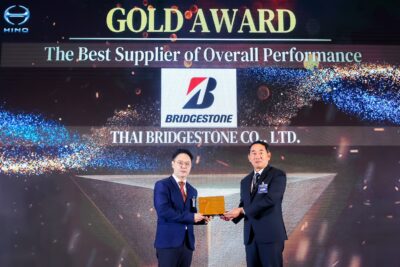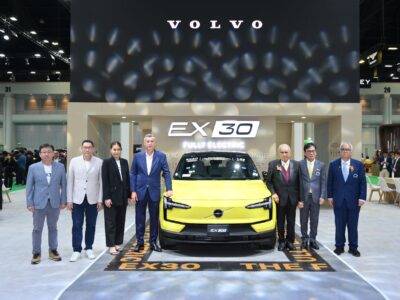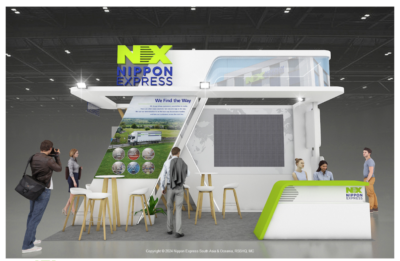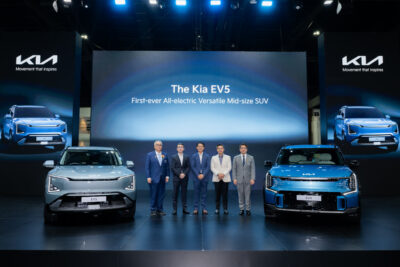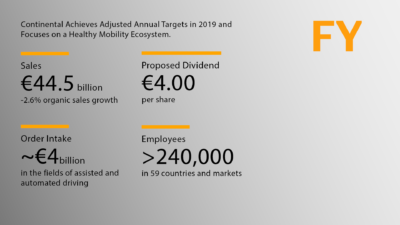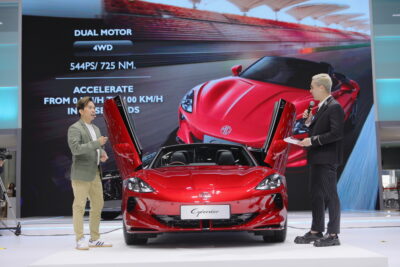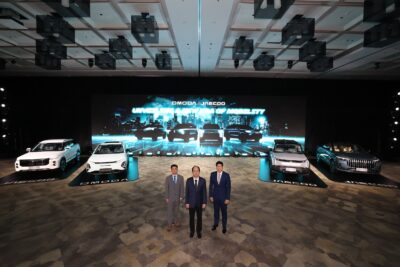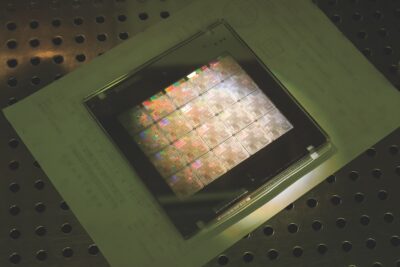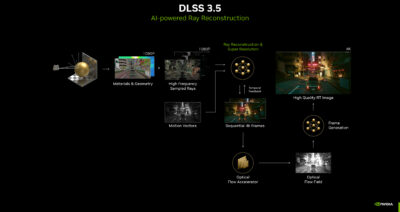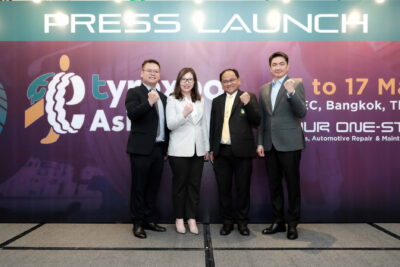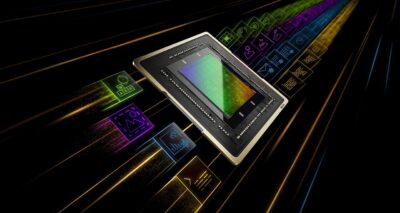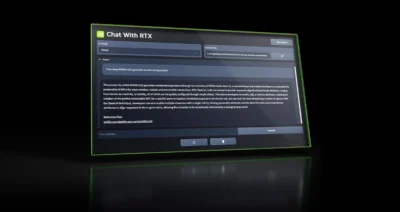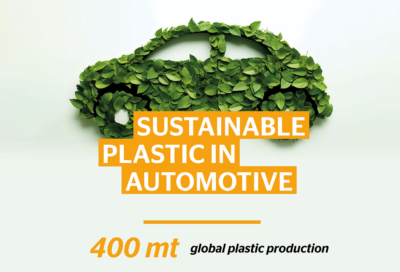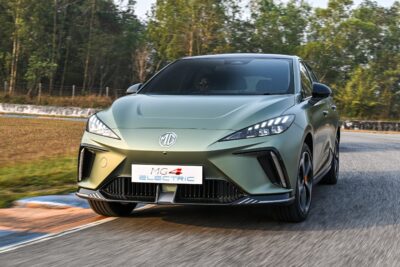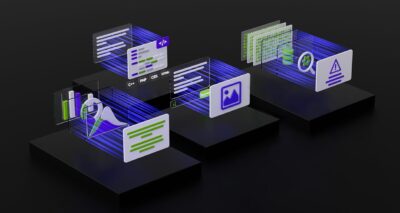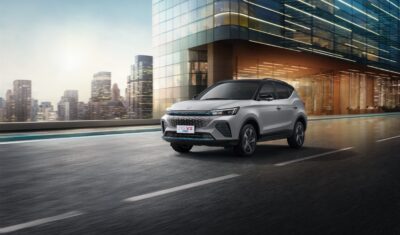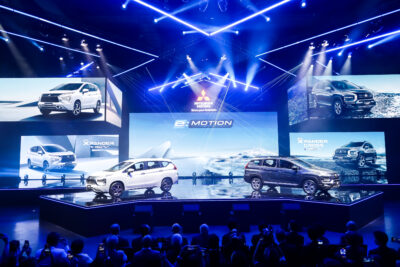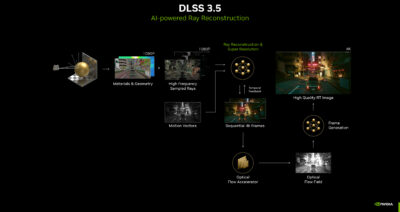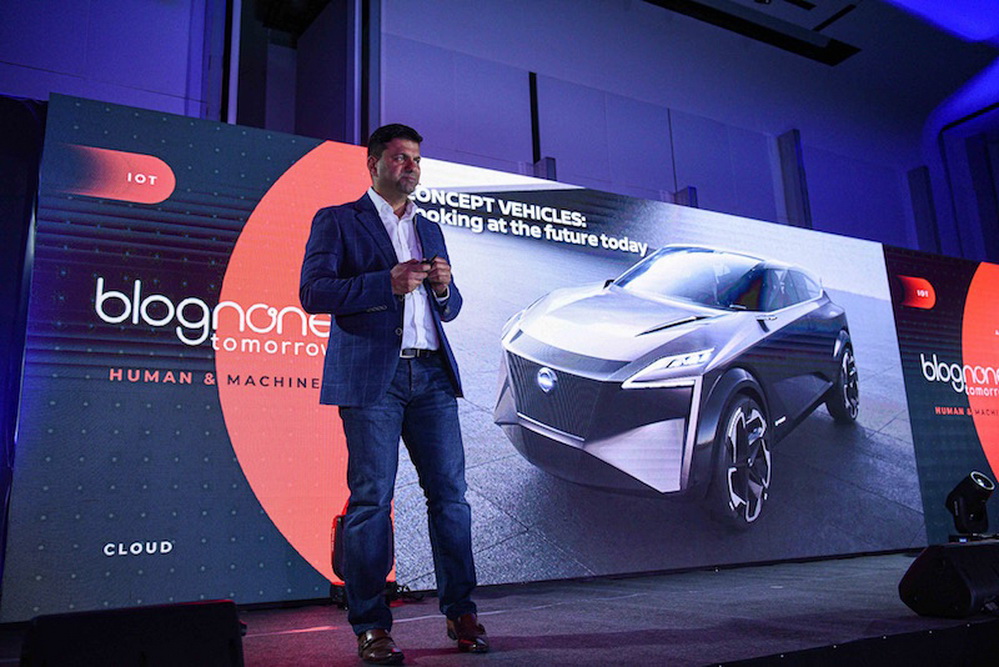
Nissan shared its vision for Thailand’s future mobility during the recent ‘Blognone Tomorrow 2019: Human & Machine Technology Conference,’ presenting key automotive trends from around the world that will influence the local market.
The conference, held under the theme ‘Human & Machines’, put a spotlight on a new paradigm that unites humans and machines during this time of rapid change under Industry 4.0.
Speaking during his keynote session, Ramesh Narasimhan, president of Nissan in Thailand, described how technology has the unique ability to solve real-world problems to benefit as many people as possible.
“Nissan’s story has been one of innovation with the goal of making peoples’ lives better,” Narasimhan said, citing examples like how Nissan’s EV batteries can be used to power homes, offices, a stadium, or even the grid. “Today we are continuing that innovation with Nissan Intelligent Mobility.”
Narasimhan also discussed key mobility trends that will help provide a road map for Thailand’s future mobility innovations – including how to utilize cars as energy assets; the human role in autonomous driving systems; and some exciting driving technologies for tomorrow.
Among these trends were:
Vehicles as mobile energy units: The electrification of mobility will be a player in helping solve the problem of growing energy needs. Electric vehicles (EVs) can be more than just a mode of transportation but also a means of powering homes and returning energy to the grid.
Humans still need to be at the center of the car and able to interact seamlessly with future technologies: The future of cars is keeping people at the center of technology. “We don’t build technology to replace people, we build it to make life better for people and to transform mobility in our cities,” Narasimhan said.
Exciting technologies for tomorrow: During the keynote, Narasimhan showcased Nissan’s Invisible-to Visible (I2V) technology that merges the real and virtual worlds, as well as its Nissan’s Brain-to-Vehicle (B2V) technology that uses autonomous systems to analyse, learn from and predict a driver’s brain wave activity so as to help make the driving experience even more seamless.
Through a human-centric approach, Nissan is designing the cars of the future that truly meet the changing demands of today’s and tomorrow’s customers in Thailand and across the world.
“At Nissan, we always aim to be ahead of the curve: we don’t just anticipate future trends and technologies, we define them,” Narasimhan said. “These technological advancements underscore Nissan Intelligent Mobility, our vision for changing how cars are powered, driven and integrated into society.”
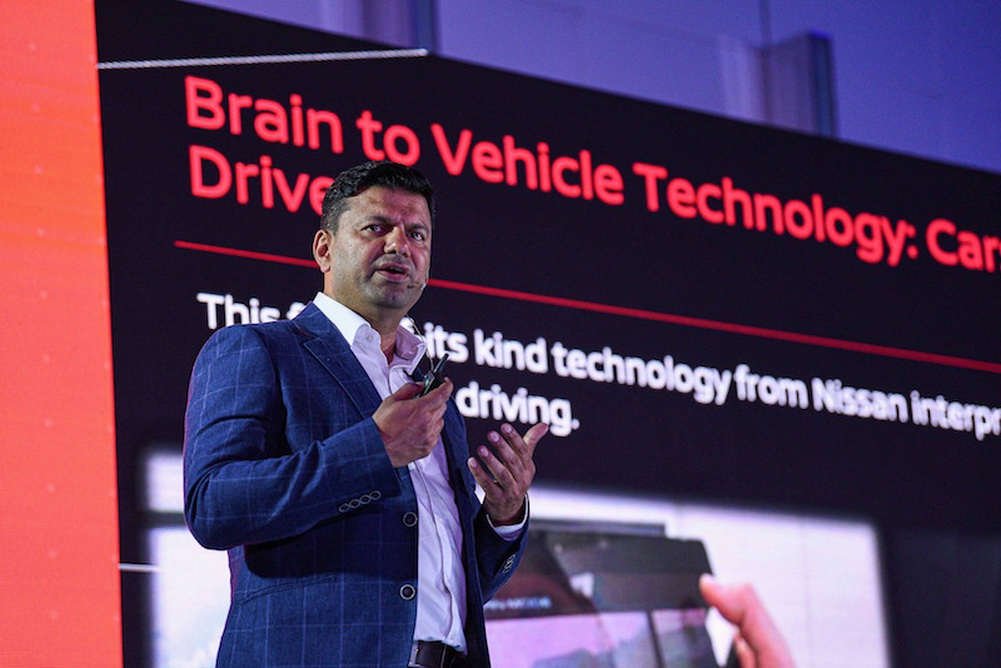
About Nissan Motor (Thailand) Co., Ltd.
Nissan was established in Japan since 1933 with the commitment to create Innovation that Excites for customer satisfaction. Nissan wants to improve quality of life for people in society by pursuing a goal of zero emission vehicles and zero fatalities on the road with “Nissan Intelligent Mobility”. The company plans to introduce autonomous drive vehicles across regions for safety and more enjoyable driving experience. Nissan started business in Thailand since 1952. Currently, the Nissan Group of Companies in Thailand has subsidiaries five companies, including two of the production bases, over than 180 showrooms and service centers nationwide network. Vehicle range cover all segments includes 10 models spanning the entry level Eco-Car, SUV, Premium Sedans and Pickup Trucks.
About Nissan Motor Co., Ltd.
Nissan is a global full-line vehicle manufacturer that sells more than 60 models under the Nissan, INFINITI and Datsun brands. In fiscal year 2018, the company sold 5.52 million vehicles globally, generating revenue of 11.6 trillion yen. Nissan’s global headquarters in Yokohama, Japan, manages operations in six regions: Asia & Oceania; Africa, the Middle East & India; China; Europe; Latin America; and North America. Nissan has partnered with French manufacturer Renault since 1999 and acquired a 34% stake in Mitsubishi Motors in 2016. The Renault-Nissan-Mitsubishi alliance sold 10.76 million vehicles combined in calendar year 2018.

Nissan shared its vision for Thailand's future mobility during the recent 'Blognone Tomorrow 2019: Human & Machine Technology Conference,' presenting key automotive trends from around the world that will influence the local market.
The conference, held under the theme 'Human & Machines', put a spotlight on a new paradigm that unites humans and machines during this time of rapid change under Industry 4.0.
Speaking during his keynote session, Ramesh Narasimhan, president of Nissan in Thailand, described how technology has the unique ability to solve real-world problems to benefit as many people as possible. "Nissan's story has been one of innovation with the goal of making peoples' lives better," Narasimhan said, citing examples like how Nissan's EV batteries can be used to power homes, offices, a stadium, or even the grid. "Today we are continuing that innovation with Nissan Intelligent Mobility."
Narasimhan also discussed key mobility trends that will help provide a road map for Thailand's future mobility innovations – including how to utilize cars as energy assets; the human role in autonomous driving systems; and some exciting driving technologies for tomorrow.
Among these trends were:
Vehicles as mobile energy units: The electrification of mobility will be a player in helping solve the problem of growing energy needs. Electric vehicles (EVs) can be more than just a mode of transportation but also a means of powering homes and returning energy to the grid.
Humans still need to be at the center of the car and able to interact seamlessly with future technologies: The future of cars is keeping people at the center of technology. "We don't build technology to replace people, we build it to make life better for people and to transform mobility in our cities," Narasimhan said.
Exciting technologies for tomorrow: During the keynote, Narasimhan showcased Nissan's Invisible-to Visible (I2V) technology that merges the real and virtual worlds, as well as its Nissan's Brain-to-Vehicle (B2V) technology that uses autonomous systems to analyse, learn from and predict a driver's brain wave activity so as to help make the driving experience even more seamless.
Through a human-centric approach, Nissan is designing the cars of the future that truly meet the changing demands of today's and tomorrow's customers in Thailand and across the world. "At Nissan, we always aim to be ahead of the curve: we don't just anticipate future trends and technologies, we define them," Narasimhan said. "These technological advancements underscore Nissan Intelligent Mobility, our vision for changing how cars are powered, driven and integrated into society."

About Nissan Motor (Thailand) Co., Ltd.
Nissan was established in Japan since 1933 with the commitment to create Innovation that Excites for customer satisfaction. Nissan wants to improve quality of life for people in society by pursuing a goal of zero emission vehicles and zero fatalities on the road with "Nissan Intelligent Mobility". The company plans to introduce autonomous drive vehicles across regions for safety and more enjoyable driving experience. Nissan started business in Thailand since 1952. Currently, the Nissan Group of Companies in Thailand has subsidiaries five companies, including two of the production bases, over than 180 showrooms and service centers nationwide network. Vehicle range cover all segments includes 10 models spanning the entry level Eco-Car, SUV, Premium Sedans and Pickup Trucks.
About Nissan Motor Co., Ltd.
Nissan is a global full-line vehicle manufacturer that sells more than 60 models under the Nissan, INFINITI and Datsun brands. In fiscal year 2018, the company sold 5.52 million vehicles globally, generating revenue of 11.6 trillion yen. Nissan's global headquarters in Yokohama, Japan, manages operations in six regions: Asia & Oceania; Africa, the Middle East & India; China; Europe; Latin America; and North America. Nissan has partnered with French manufacturer Renault since 1999 and acquired a 34% stake in Mitsubishi Motors in 2016. The Renault-Nissan-Mitsubishi alliance sold 10.76 million vehicles combined in calendar year 2018.


